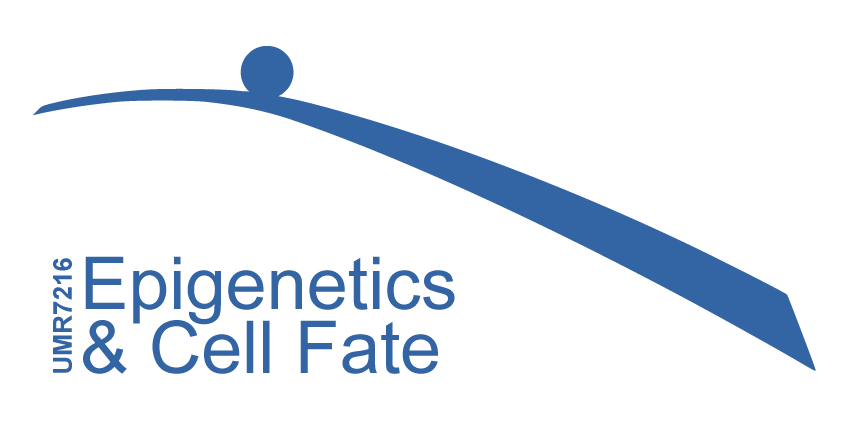Centromeric repeats transcription
A paradigm to link transcription of DNA repeats to global molecular and cellular effects
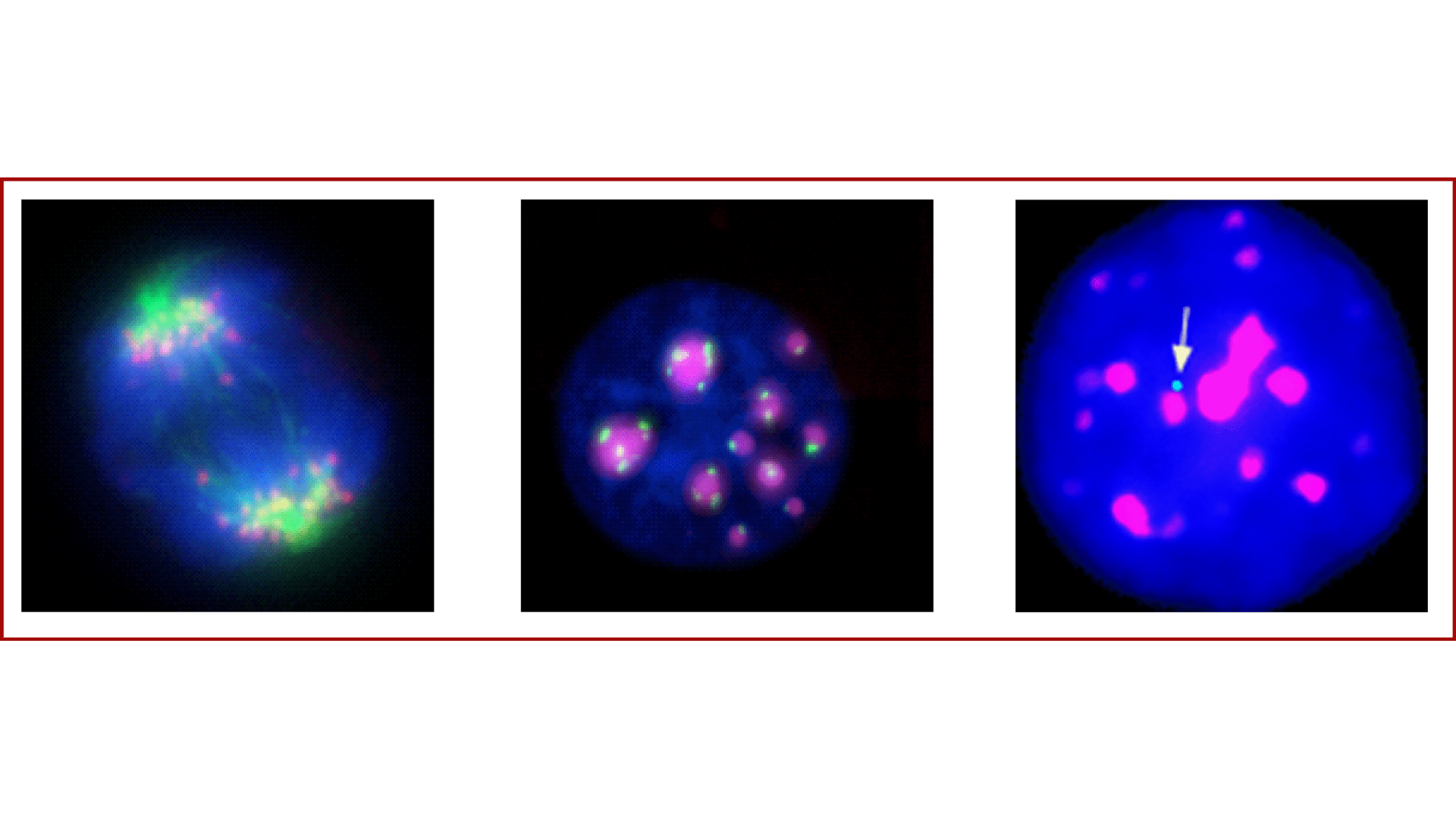
Cells in several phases of the cell cycle
© EDC
Tandem repeats that underlie centromeric regions have a structural role at the chromosomal level, providing the assembly platforms for the kinetochore and attachment of the mitotic spindle, but also in the functional organization of the nucleus and long-range control of genome expression.
We characterized transcripts that originate from murine centromeric repeats and showed that they are essential for centromere identity and function, whereas their unscheduled accumulation is causally linked to perturbed nuclear organization and cellular phenotypes. However, we showed that the outcome greatly depends on cellular and genetic contexts. In primary cells, increased transcription of centromeric repeats functions as a sensor of stress promoting cell cycle arrest and safeguard mechanisms; in contrast, in contexts of loss of the p53 checkpoints it leads to chromosomal instability.
We explore the causal link between aberrant transcription of repetitive sequences and perturbed molecular and cellular programs, ex vivo in various cellular and genotype context and in mouse models. We also question the mechanisms that lead to their deregulated transcription, with special interest on DNA methylation that is tightly linked with maintenance of integrity of these sequences and hence, with maintenance of genome stability. Ultimately, we aim at deciphering the cellular functions and regulatory factors deregulated by their unscheduled accumulation.
Related publications:
- Hédouin S, Grillo G, Ivkovic I, Velasco G, Francastel C. CENP-A chromatin disassembly in stressed and senescent murine cells. Sci Rep. 2017 Feb 10;7:42520. doi: 10.1038/srep42520. PMID: 28186195
- Guillemin C, Francastel C. [Heterochromatin compartments and gene silencing: human hematopoietic differentiation as a model study]. Biol Aujourdhui. 2010;204(3):221-33. Review. French. PMID: 20950566
- Guillemin C, Maleszewska M, Guais A, Maës J, Rouyez MC, Yacia A, Fichelson S, Goodhardt M, Francastel C. Chromatin modifications in hematopoietic multipotent and committed progenitors are independent of gene subnuclear positioning relative to repressive compartments. Stem Cells. 2009 Jan;27(1):108-15. PMID: 18974210
- Ferri F, Bouzinba-Segard H, Velasco G, Hubé F, Francastel C. Non-coding murine centromeric transcripts associate with and potentiate Aurora B kinase. Nucleic Acids Res. 2009 Aug;37(15):5071-80. PMID: 19542185
Read more
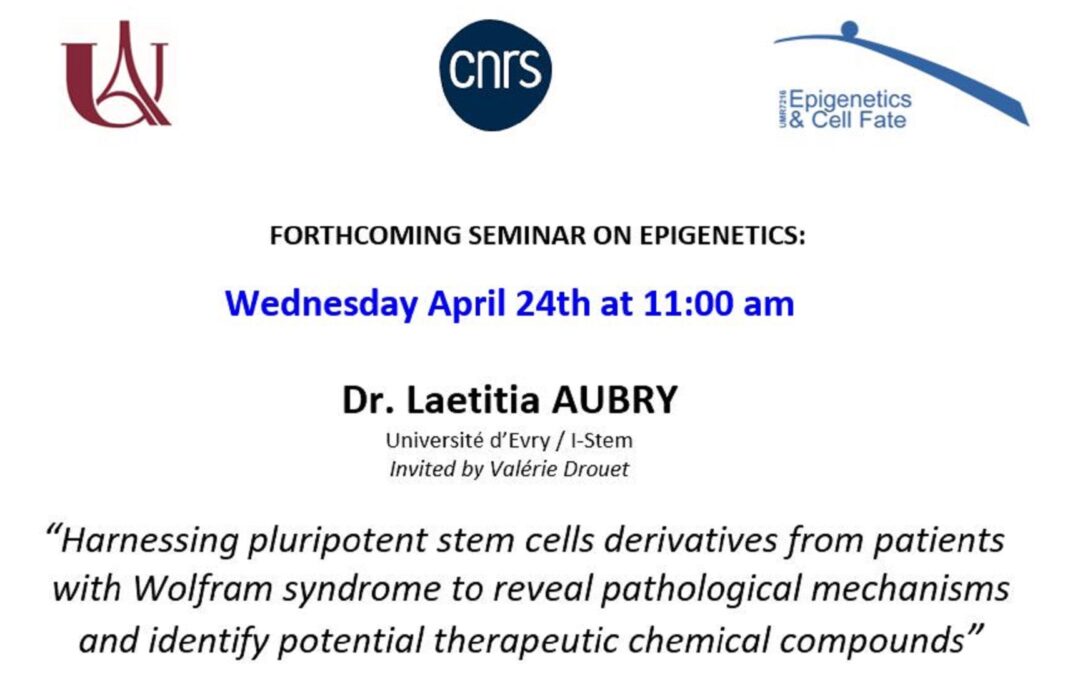
Laetitia Aubry seminar – April 24, 2024
Wednesday, April 24, 2024, at 11:00 am. Laetitia Aubry Université d’Evry / I-StemInvited by Valérie Drouet “Harnessing pluripotent stem cells derivatives from patients with Wolfram syndrome to reveal pathological mechanisms and identify potential therapeutic chemical...
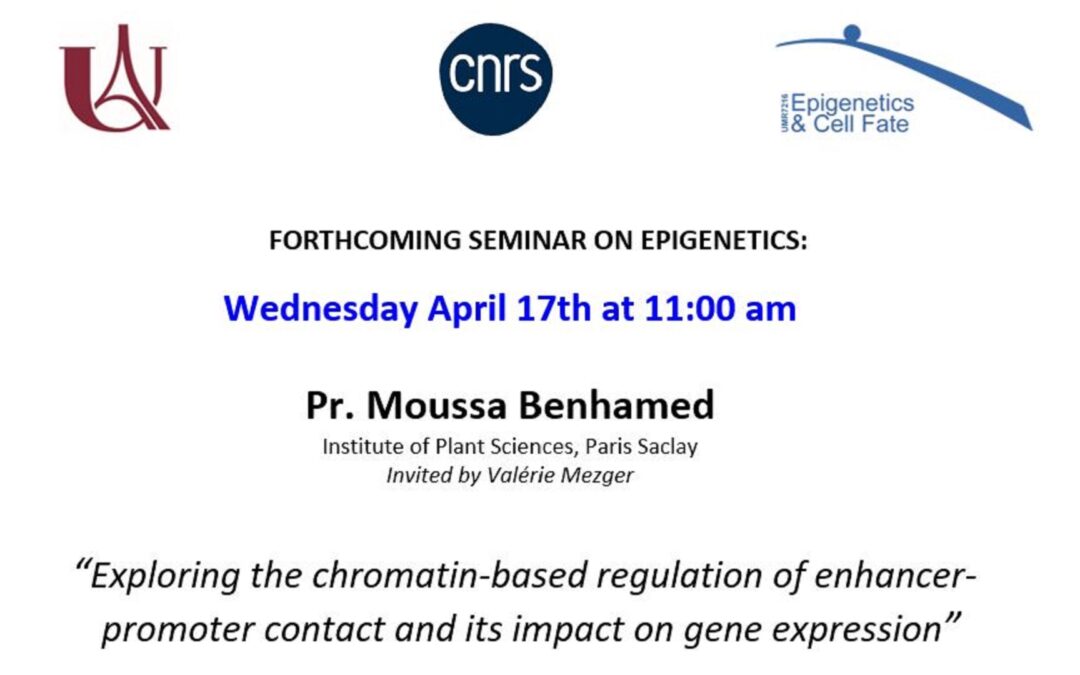
Moussa Benhamed seminar – April 17, 2024
Wednesday, April 17, 2024, at 11:00 am. Moussa Benhamed Institute of Plant Sciences, Paris SaclayInvited by Valérie Mezger “Exploring the chromatin-based regulation of enhancer-promoter contact and its impact on gene expression” The seminar will take place in the...

Professional afterwork – April 22, 2024
Do you know what else exists outside academia?Come to talk about it with our two guests on Monday, April 22, 2024, at 6.15 pm. Where? Epigenetics and Cell Fate Center (EDC)Université Paris Cité - 35 Rue Helene Brion 75013 Paris – Lamarck B building - Hall (Upper...
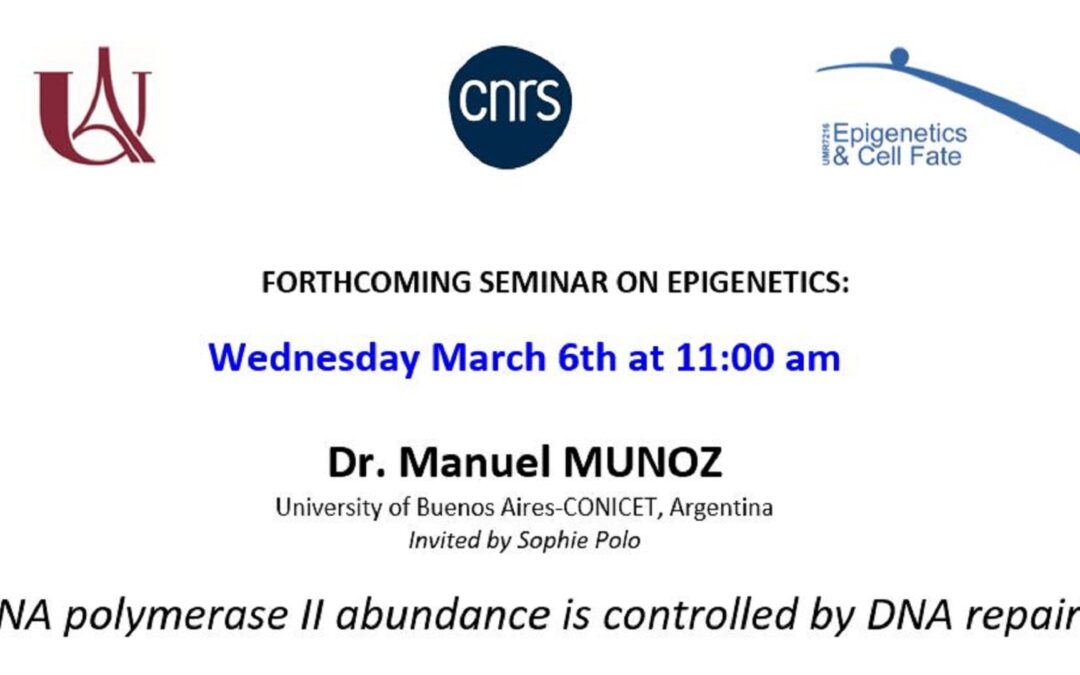
Manuel Muñoz seminar – March 6, 2024
Wednesday, March 6, 2024, at 11:00 am Manuel Muñoz University of Buenos Aires-CONICET, ArgentinaInvited by Sophie Polo “RNA polymerase II abundance is controlled by DNA repair” The seminar will take place in the Institut Jacques Monod seminar room (RB-18B). Buffon...
